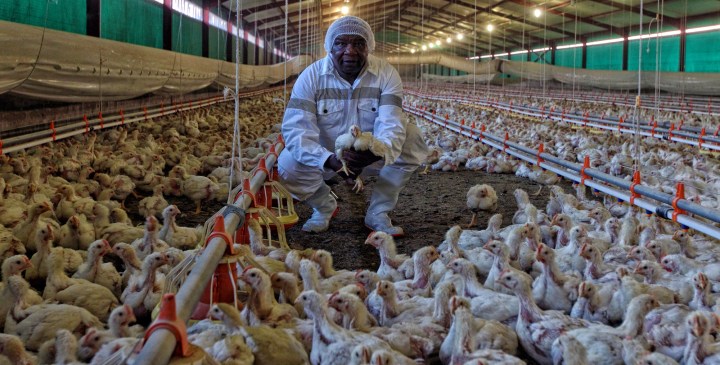OP-ED
Study the data: Imports are not threatening local chicken production

The imposition of further duties on imported chicken could see a staple food vanishing from consumers’ plates, warns the Association of Meat Importers and Exporters.
The South African Poultry Association (SAPA) is attempting to reduce chicken exports by requesting that the International Trade Administration Commission (ITAC) places new, massive import duties on chicken products. The protection being sought is in addition to a “safeguard levy” of 35.5% granted the industry against EU chicken in September 2018.
On the back of this claim, which is difficult to substantiate, SAPA is asking ITAC to increase duties. Their request is that:
- A surge from 37% to 82% ad valorem is granted for imports of bone-in cuts of chicken; and
- A massive jump from 12% to 82% ad valorem is approved for imported boneless cuts of chicken.
- If the recommendations by SAPA are introduced, consumers could expect an increase in the price of boneless chicken cuts of between 28% and 32%.
- Bone-in chicken prices could increase by between 13% and 15%.
This increase mirrors an application that was granted in September 2018. By using information based on 2016 data, which was a challenging year in the local industry, SAPA managed to have a “safeguard duty” of 35.3% imposed on EU chicken imports.
Although the scenarios applicable to 2016 no longer apply, they have now set their sights on other exporters — primarily Brazil — in an attempt to secure an even larger slice of the local market. The losers will be consumers, who will see chicken prices spike — and chicken vanish from shopping lists.
What South Africans are not being told by SAPA is that:
- Broiler meat production involves the transformation of various inputs, predominantly day-old chicks and feed, into broilers. These birds are then slaughtered, processed, and sold in consumer-ready packaging through retailers.
- Due to the large-scale of production by vertically integrated producers (those who also own feed producers, abattoirs and other facilities) in South Africa, a large proportion of broiler meat is sold directly to national retail chains.
- The wholesale poultry product space for domestically produced broilers in South Africa is limited. It is in this segment that Association of Meat Importers and Exporters (AIME) members operate and where its members provide chicken products for the local market.
- Imports of frozen poultry meat are acquired in bulk packaging and undergo value-added processing before being sold through retail channels. This processing takes the form of unpacking the frozen portions from their bulk containers, cleaning the portions and repackaging them into retail-ready packaging. This processing transforms the level of trade from wholesale to the retail level.
- SAPA ignores the fact that before imported chicken enters the local market, additional costs are added to the process. A proper comparison of the price should not be based on landed cost, but include repacking, insuring, loading, sea-freighting, unloading, clearing, paying taxes and duty on, and transporting the broiler meat to a processing facility in South Africa. When this procedure is considered, the following is revealed:
During the third quarter of 2018, the cost “ex-farm” for local birds was R21.19 per broiler. The cost for imported chicken at the point of entry was R21.52.
Additional local costs for transporting, slaughtering and packaging domestic poultry is R3.18. The imported meat costs added through packaging, warehousing and other costs are R3.06.
- Given the above statistics, local chicken is delivered for R24.37 — a full 21c cheaper than the imported product (R24.58).
- There has been no significant decrease in the prices of imported chicken since 2015 that would have placed downward pressure on domestic prices.
- Local decreases in sales volumes and demand can be attributed to slower economic growth, reduced consumer spending and therefore less demand for boneless and bone-in cuts. This is mentioned in publicly available Astral industry comment.
- SAPA says that producers within the South African Customs Union can deliver enough chicken to meet demand within this region. The question of cost and what the implications would be on consumer prices is not addressed. Food security not only depends on sustainable supply, but also on the ability of consumers to purchase food at competitive prices.
- They fail to mention that local input costs are decreasing and that employment across the industry has increased.
SAPA’s application for an increase in the customs duty on the frozen chicken is the most recent of a long line of protectionist measures that broiler producers have requested, and in many instances been granted.
There will be a transmission from the increased tariffs into higher retail prices. ITAC, therefore, needs to carefully consider the cost to the South African economy of offering further protection to the domestic broiler industry.
At AMIE, we believe that South African consumers deserve a thorough, far more intensive examination of issues regarding pricing before ITAC reaches a conclusion. It is in the interests of all South Africans that protectionist policies that could impact on the vast majority of our people are appropriately considered before they have undesirable long-term consequences. DM
Paul Matthew is the CEO of the Association of Meat Importers and Exporters (AMIE).



















 Become an Insider
Become an Insider